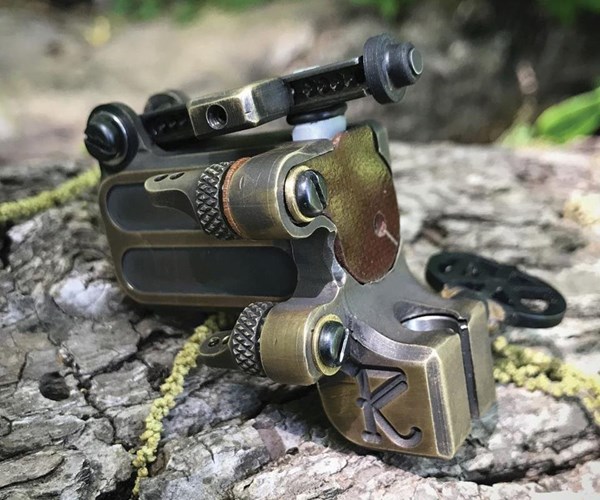Case Study: Manufacturing the Tools for Tattoos
Dan Kubin’s artistry isn’t just skin deep. He’s found a way to channel his creativity into another part of the tattooing process—designing and developing the machines that apply tattoos.
Share






Dan Kubin used to prototype his distinctive rotary tattoo machines using hobbist-type equipment, but the process was too slow to keep up with his creativity and the demand for his products.
When most people think of tattoos, they picture the designs permanently inked on someone’s body. Many of these are beautiful and intricate works of art created by a talented and gifted artist. But tattoo artist Dan Kubin has added another layer to his creativity; he designs and develops the machines used to apply tattoos. Moreover, these machines themselves are works of art.
Mr. Kubin became interested in tattooing when he served as a machinist and welder in the U.S. Air Force. He later began to design and develop tattoo machines manually, outsourcing their machining in bulk. This system was unsustainable, however, due to the number of different designs he makes, combined with the custom-nature of his work. His constantly evolving creativity was frustrating for everyone involved, he says.
Instead of spending a day and a half using a small, hobbyist-type benchtop mill with a digital readout and a rotary table to create the basic frame of new tattoo machine prototypes, Mr. Kubin decided to buy a milling machine with a control so he could develop parts exactly the way he wanted within his own timeframe.
Related Content
-
In Moldmaking, Mantle Process Addresses Lead Time and Talent Pool
A new process delivered through what looks like a standard machining center promises to streamline machining of injection mold cores and cavities and even answer the declining availability of toolmakers.
-
Tsugami Lathe, Vertical Machining Center Boost Machining Efficiency
IMTS 2024: Tsugami America showcases a multifunction sliding headstock lathe with a B-axis tool spindle, as well as a universal vertical machining center for rapid facing, drilling and tapping.
-
Lean Approach to Automated Machine Tending Delivers Quicker Paths to Success
Almost any shop can automate at least some of its production, even in low-volume, high-mix applications. The key to getting started is finding the simplest solutions that fit your requirements. It helps to work with an automation partner that understands your needs.





















